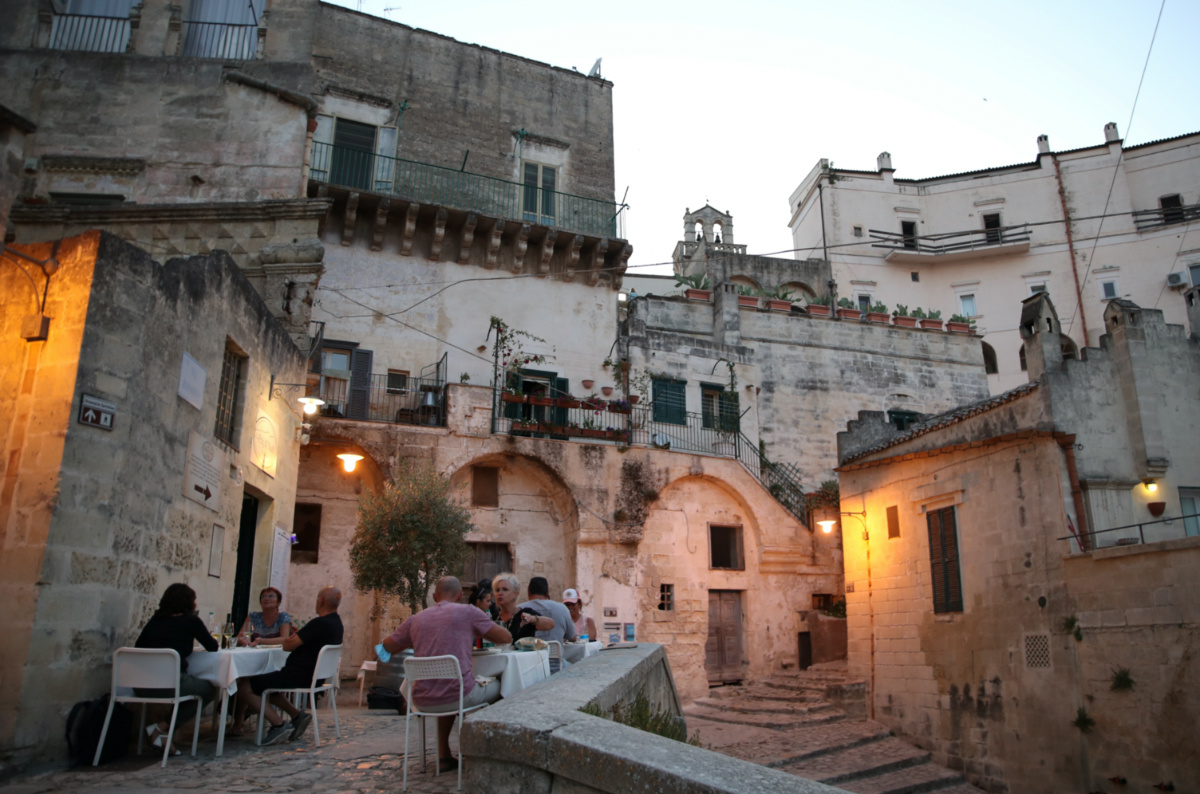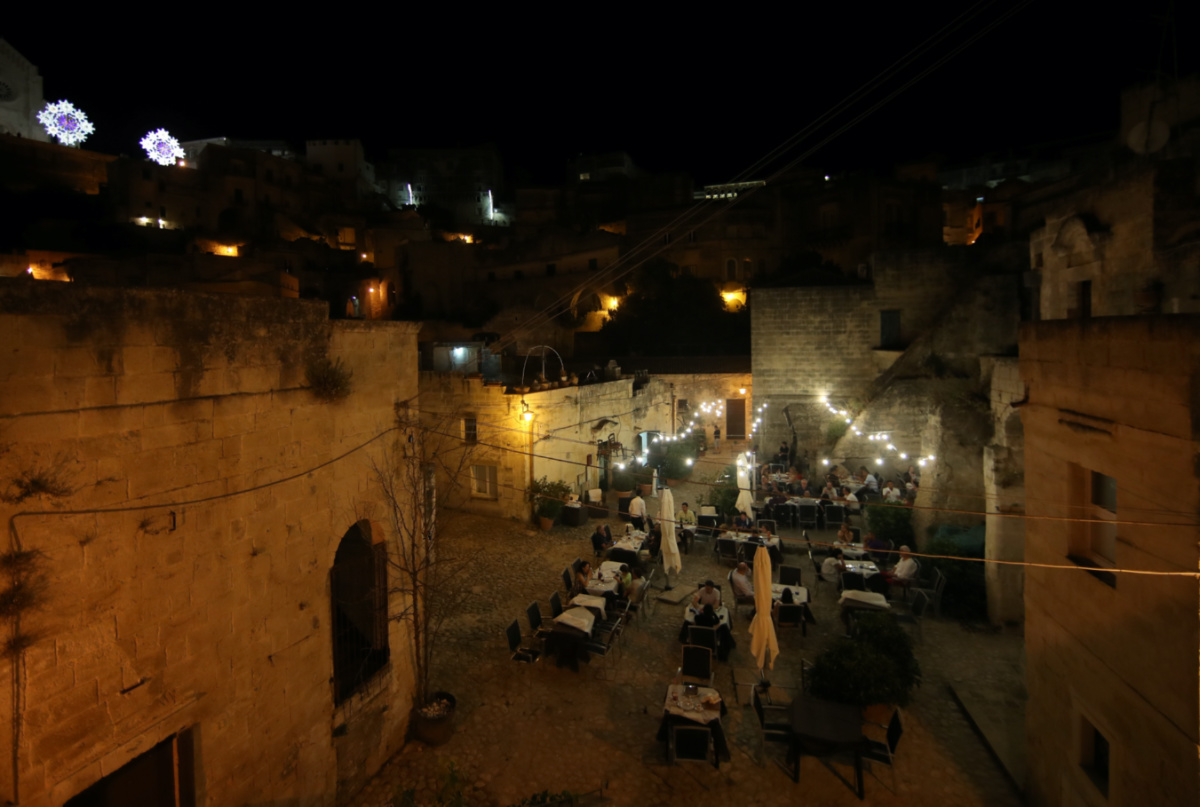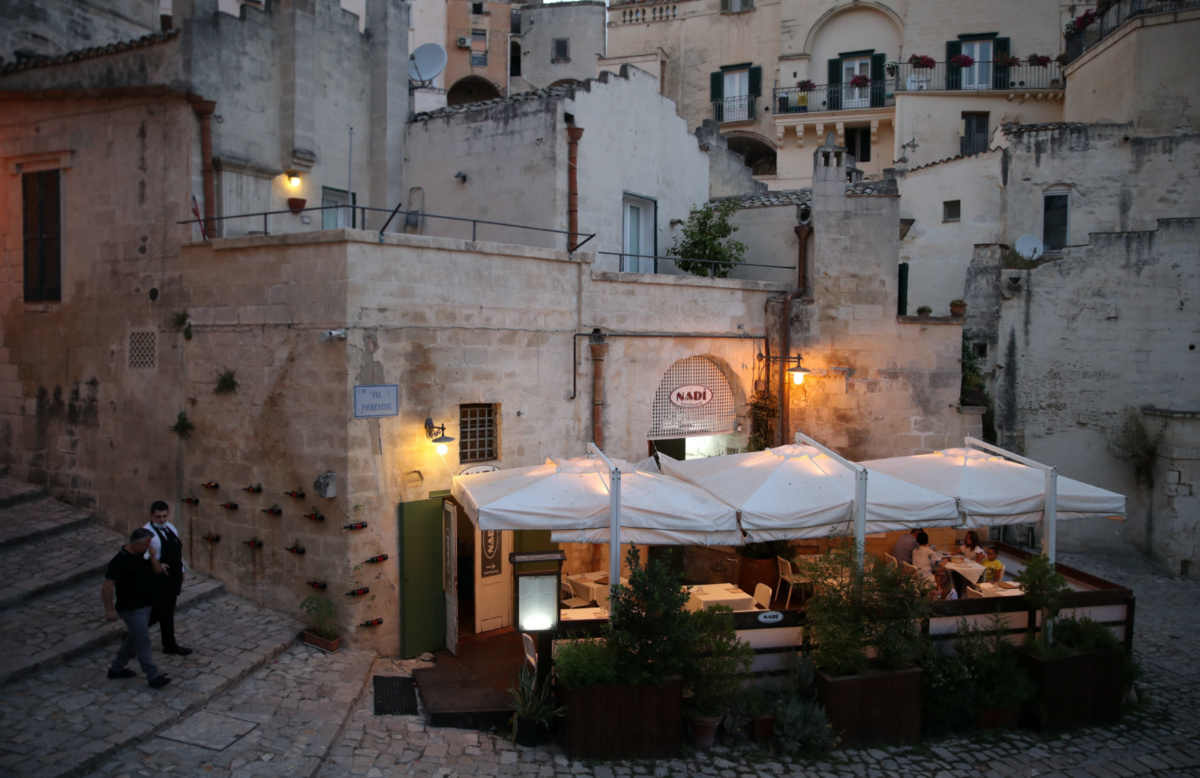
ANGELO AMANTE, writing for Reuters, reports on the difficulties facing the hospitality industry in Italy as the country looks to a post-COVID future…
Rome, Italy
Reuters
Coronavirus curbs have eased, tourists are returning, but Italy’s restaurants and hotels are facing an unexpected problem – they can’t find the staff.
Prime Minister Mario Draghi’s unity government is counting on a robust rebound from last year’s recession, Italy’s deepest since World War II, and is looking to tourism – aided by the EU’s new COVID-19 pass – to lead the way this summer.
But emerging recruitment difficulties, echoing reports of chronic labour shortages in the US, British and Australian hospitality industries, could hamper prospects for recovery in Italy and the wider euro zone.

People sit at a restaurant in Matera, Italy, on 28th June. PICTURE: Reuters/Yara Nardi
“We are in trouble,” said Stefano Giuliodori, who is struggling to hire 12 waiters and chambermaids for his hotel in the Adriatic resort of Riccione.
“We are expecting a lot of visitors and we absolutely need staff, but it has become really difficult to find anyone.”
“We are in trouble. We are expecting a lot of visitors and we absolutely need staff, but it has become really difficult to find anyone.”
– Stefano Giuliodori.
Alessandro Massimo Nucara, general director of hotel lobby group Federalberghi, estimates the labour shortage in the sector at around 10 per cent, or 50,000 workers.
Employment data suggests young Italians should be desperate to work. In April, 33.7 per cent of jobseekers aged between 15 and 24 were unemployed, one of the highest rates in the European Union.
Moreover, more than 23 per cent of Italians between 15 and 29 are neither in employment, education or training – almost double the EU average for “NEETs” and easily the highest in the 27-nation bloc.
Giuliodori, who is offering net monthly salaries of around €1,200, believes part of the problem lies with welfare benefits, some introduced before the arrival of COVID-19 in an effort to prevent families from falling into deep poverty.
“With all these subsidies, people prefer not to leave their home town, not to pay a rent and remain with their families doing some odd jobs,” said Giuliodori.
Most of Riccione’s seasonal workers come from outside the region, meaning they have to find board and lodging, eating into earnings that may fall far short of the roughly €20,000 a year Eurostat says is average for a single, childless Italian.

People sit at a restaurant in Matera, Italy, on 28th June. PICTURE: Reuters/Yara Nardi
A basic income welfare scheme introduced in 2019 pays job seekers around 500 euros a month. A separate emergency scheme for people hard-hit by the pandemic but who did not qualify for so-called “citizens’ salary” pays up to €840 per family.
Official statistics show that in March, 2021, 2.99 million people were receiving the citizens’ salary, while 628,242 families were benefiting from the emergency scheme, which lasts until at least September.
“The citizen’s salary is stopping young people from getting a job,” former centre-left Prime Minister Matteo Renzi said on Twitter last week, calling for the money to be diverted to lower corporate taxes and the cost of hiring.
However, many say the reason for the worker shortage is not welfare benefits but bad pay and working conditions.
The tourism industry, which accounts for around 13 per cent of Italian GDP, has a particularly poor reputation.
Employees complain they are often paid off the books, without the formal employment status needed to qualify for ordinary social security benefits and COVID-19 specific schemes they might need if infections rise again.
Giuseppe, from Catania in Sicily, who did not want to give his surname, said he had worked for the past 10 years in pizzerias, but was fed up of never having a proper contract.
“Everything was cash in hand. Thirty euros for working from the early afternoon until late at night,” he said. “If they want to find more workers, they will have to offer regular contracts.”
Roberto Sabato, who leads a rights group for seasonal workers called “Oltre la piazza” (Beyond the Square), says the pandemic has led workers like him to reassess their lives.
“People now think: The pandemic means I can die tomorrow, and I have spent my whole life as a slave. I don’t want to do this anymore,” Sabato told Reuters.

People sit at a restaurant in Matera, Italy, on 28th June. PICTURE: Reuters/Yara Nardi.
Businesses have also sounded the alarm over labour scarcity in other European nations including Germany and tourism-reliant Greece.
“There has been a [labour] shortage, which is pretty weird, after seven months of lockdown,” Greek restaurants federation head George Kavvathas said, adding that a government workers’ support scheme was part of the problem.
In Germany, some 30 per cent of thousands of hospitality-sector businesses that have not reopened in June after lockdowns eased cited staff shortages as the reason, the German Hotel and Restaurant Association said.
In Italy, the coronavirus forced months-long closures for bars, restaurants and hotels, with one in four jobs in the sector lost in 2020, according to hotel and hospitality associations. There is now a fear some workers may never return.
“Many of those who used to work in tourism have found another kind of work,” said Marco Fontanari, a restaurant owner and deputy head of business lobby Confcommercio in the northern province of Trentino.
A survey in Germany showed some 42 per cent of hotels and restaurants have seen their staff move into other sectors like retail, logistics or hospital canteens.
With COVID-19 variants circulating, Fontanari said fear of future lockdowns was making people reluctant to return.
“They say that rather than give up the stability of the social security schemes, they prefer to wait and see what happens.”
– Additional reporting by ANGELIKI KOUTANTOU in Athens, EMMA THOMASSON in Berlin and GAVIN JONES in Rome.





